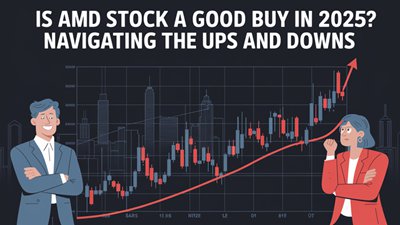MarketLens
Is PepsiCo a Good Buy Now?
PepsiCo (NASDAQ: PEP) presents a compelling investment opportunity characterized by a robust dividend yield, consistent growth, and favorable analyst ratings. However, potential investors should weigh these strengths against market pressures and economic uncertainties to make an informed decision.
Dividend Strength and Stability
PepsiCo’s reputation as a “Dividend King” is well-earned, with 52 consecutive years of dividend increases. The current dividend yield stands at 3.3%, which is attractive for income-focused investors. Over the past five years, the company has raised its dividend by an average of 6.6% annually, with the most recent increase being 7.1%. This consistent growth in dividends reflects management’s confidence in the company’s financial health and future prospects.
The payout ratio of 66% of estimated 2024 earnings indicates that PepsiCo’s dividends are well-covered. This ratio suggests that the company retains sufficient earnings to reinvest in its business or repurchase shares, providing a balanced approach to rewarding shareholders and fostering long-term growth.
Growth Prospects
PepsiCo’s growth strategy is multifaceted, leveraging price increases, expanding product lines, and acquiring new brands. Management’s guidance for 2024 includes a 4% year-over-year organic revenue growth and a 7% increase in earnings per share (EPS) over 2023. Analysts project a similar trajectory, with an average annual earnings growth of over 7% for the next three to five years.
This growth outlook is underpinned by PepsiCo’s diversified portfolio, which spans beverages and convenient foods across multiple regions, including North America, Latin America, Europe, and the Middle East. The company’s ability to adapt to changing consumer preferences and economic conditions is a testament to its resilient business model.
Valuation and Market Sentiment
PepsiCo’s stock has experienced a 17% decline from its peak, currently trading below 20 times this year’s estimated earnings. This valuation presents a potentially attractive entry point for investors, especially considering the company’s strong fundamentals and growth prospects.
Recent analyst ratings reflect a generally positive sentiment towards PepsiCo. Barclays has given the stock a buy rating with a price target of $190 per share, while TD Cowen has slightly lowered its target from $200 to $190. Evercore ISI maintains a hold rating, indicating a cautious but stable outlook. The consensus among Wall Street analysts is a “moderate buy,” with a predicted upside of 10.99% over the next 12 months.
Financial Performance and Ratios
PepsiCo’s financial metrics further bolster its investment case. The company boasts a market capitalization of $226 billion, with a trailing twelve months (TTM) earnings per share (EPS) of 6.64 and a price-to-earnings (P/E) ratio of 24.74. The forward P/E ratio of 19.79 suggests that the market expects continued earnings growth.
Key financial ratios highlight PepsiCo’s operational efficiency and profitability. The company has a gross margin of 54.48% and a net margin of 10.08%, indicating strong cost management and profitability. The return on equity (ROE) of 50.90% is particularly impressive, showcasing the company’s ability to generate significant returns on shareholder equity.
However, the debt-to-equity ratio of 240.81% is relatively high, which could be a concern in a rising interest rate environment. Investors should monitor PepsiCo’s debt levels and interest coverage ratios to ensure that the company can comfortably service its debt obligations.
Market Forces and Economic Considerations
PepsiCo operates in the consumer staples sector, which is generally considered defensive and resilient during economic downturns. However, the current economic environment presents both challenges and opportunities. Weaker consumer spending due to inflationary pressures could impact short-term sales growth. Conversely, PepsiCo’s ability to pass on cost increases to consumers through price hikes could mitigate some of these pressures.
The upcoming earnings report will be a critical indicator of how well PepsiCo is navigating these economic headwinds. Investors should pay close attention to management’s commentary on consumer behavior, cost pressures, and strategic initiatives.
Analyst and Market Perspectives
The consensus among analysts is cautiously optimistic. With six hold ratings and seven buy ratings over the past year, the overall sentiment leans towards a moderate buy. This balanced view reflects confidence in PepsiCo’s long-term growth prospects while acknowledging short-term uncertainties.
Analysts from reputable firms such as Barclays, BNP Paribas, Jefferies Financial Group, JPMorgan Chase & Co., TD Cowen, and Wedbush have all weighed in on PepsiCo, with most maintaining positive outlooks. This broad-based support from the analyst community adds credibility to the investment thesis.
Conclusion
In summary, PepsiCo (NASDAQ: PEP) appears to be a solid investment choice as of July 7, 2024. The company’s strong dividend yield, consistent growth, and favorable analyst ratings make it an attractive option for both income and growth-oriented investors. However, potential investors should remain mindful of economic uncertainties and market pressures that could impact short-term performance.
PepsiCo’s diversified portfolio, robust financial metrics, and strategic growth initiatives position it well for long-term success. As always, investors should conduct their due diligence and consider their risk tolerance and investment horizon before making any investment decisions.
Related Articles
Category
You may also like
No related articles available
Breaking News
View All →No topics available at the moment






